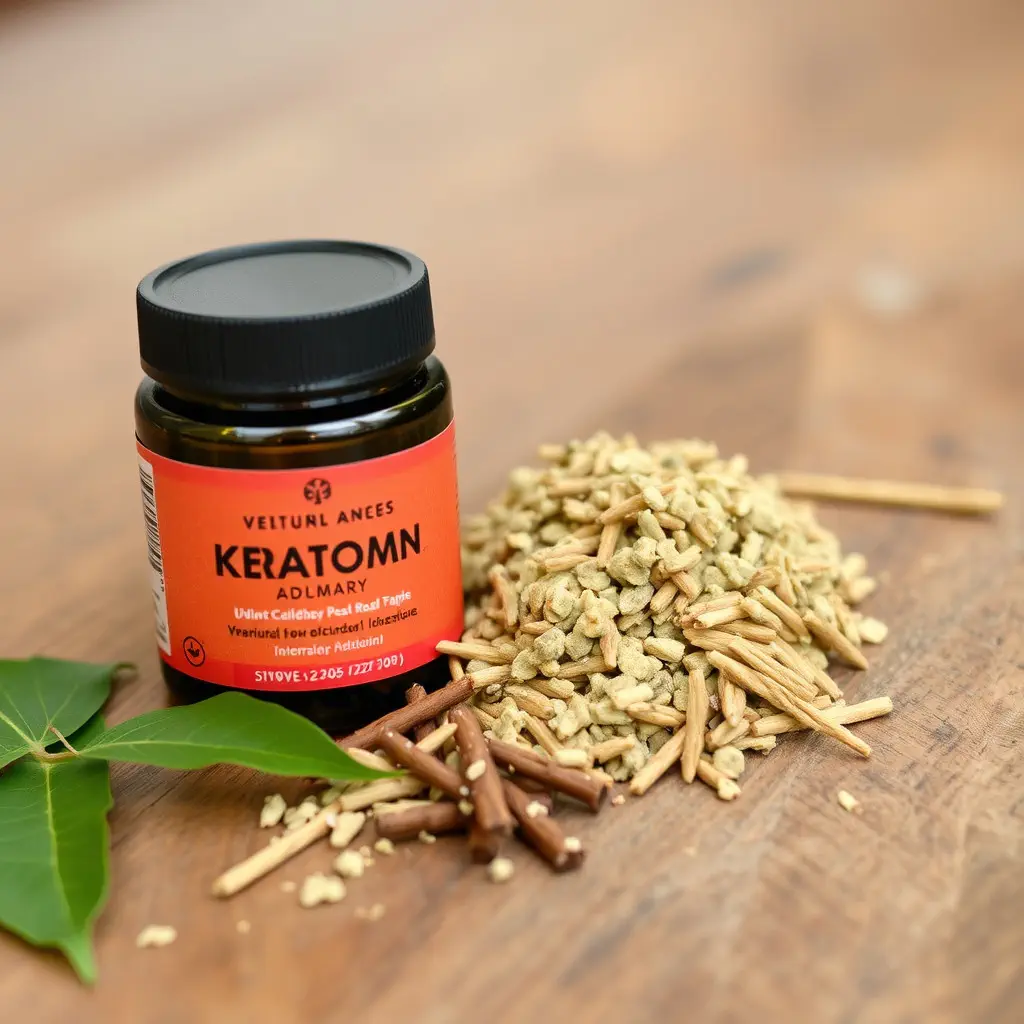Kratom, a plant from Southeast Asia with psychoactive properties due to its alkaloids, has been explored as a means to help individuals cope with opioid withdrawal. While it offers potential relief from symptoms like anxiety, muscle aches, insomnia, and irritability, its legal status in the U.S., particularly in Michigan, is complex and varies by local jurisdiction. As of 2023, kratom's federal legal status remains undefined, with the FDA overseeing its regulation. In Michigan, some counties allow kratom while others have banned it, emphasizing the need for individuals to verify its legal status in their specific location within the state. It is essential for those considering kratom for managing opioid withdrawal to consult healthcare professionals and local authorities to ensure they are using it responsibly and complying with all applicable laws, as its legality can change and may differ across municipalities. Always refer to the latest updates from authoritative sources like the FDA or HHS for the most current information on kratom's legal status in Michigan.
Kratom, a plant native to Southeast Asia, has emerged as a topic of significant interest and debate within the context of opioid withdrawal management. As individuals across the nation seek effective, alternative means to alleviate the distressing symptoms associated with opioid cessation, kratom’s potential role has come under scrutiny. This article delves into the multifaceted nature of kratom’s efficacy and safety in aiding opioid detoxification, particularly focusing on its legal status in Michigan—a crucial consideration for residents curious about ‘is kratom legal in Michigan?’ We will explore the current scientific understanding of how kratom can be utilized to manage withdrawal symptoms, balance this with the legal landscape, and provide insights into the ongoing research assessing its efficacy and safety.
- Understanding Kratom's Role in Managing Opioid Withdrawal Symptoms
- The Legal Status of Kratom in Michigan: What Users Need to Know
- Exploring the Efficacy and Safety of Kratom for Opioid Detoxification
Understanding Kratom's Role in Managing Opioid Withdrawal Symptoms

Kratom, a plant native to Southeast Asia, has garnered attention for its potential role in managing opioid withdrawal symptoms. The leaves of the kratom tree contain compounds that can interact with the body’s opioid receptors, offering both opioid-like effects and mitigating effects when opioids are abruptly stopped. As individuals seeking to withdraw from opioids encounter a range of uncomfortable symptoms such as anxiety, muscle aches, insomnia, and irritability, kratom may provide relief due to its overlapping pharmacological properties with those of opioids. Users report that kratom helps alleviate these withdrawal symptoms, though scientific evidence is still evolving.
The legal status of kratom varies across the United States, with specific considerations in states like Michigan. As of my knowledge cutoff date in 2023, kratom is not explicitly illegal at the federal level, but its sale and possession have been regulated by the U.S. Food and Drug Administration (FDA). On a state level, some counties in Michigan have banned kratom, while others allow its sale. It’s crucial for individuals interested in using kratom as a part of their withdrawal management strategy to verify its legal status within their specific municipality in Michigan. This is important not only for adhering to the law but also for understanding the regulatory environment that governs the purchase and use of kratom products. Users should consult with healthcare professionals and local authorities to make informed decisions about the use of kratom, especially when it comes to managing opioid withdrawal symptoms.
The Legal Status of Kratom in Michigan: What Users Need to Know

Kratom, a plant from Southeast Asia whose leaves contain compounds that can affect the brain, has gained attention for its potential to alleviate opioid withdrawal symptoms. As users in Michigan explore kratom as an option for managing these symptoms, it’s crucial to understand the legal status of kratom within the state. As of the knowledge cutoff date, kratom is legally available in Michigan, but its status can be complex due to shifting regulations and legislative actions at both federal and state levels. Users interested in purchasing or using kratom should note that while it’s not explicitly listed as a controlled substance under federal law, some local jurisdictions within Michigan may have enacted their own ordinances regulating or banning its sale and use. It’s imperative for individuals to verify the current laws in their specific municipalities, as compliance with local regulations is essential. The legal status of kratom in Michigan can evolve, and staying informed about state and federal legislation is key for users navigating this landscape. Always refer to the latest guidance from authoritative sources such as the Food and Drug Administration (FDA) or the Department of Health and Human Services (HHS) for the most current information regarding kratom’s legal status in Michigan and its implications for addressing opioid withdrawal symptoms.
Exploring the Efficacy and Safety of Kratom for Opioid Detoxification

Kratom, a plant from Southeast Asia with leaves that contain compounds that can act on the body’s opioid receptors, has garnered attention as a potential aid in managing opioid withdrawal symptoms. The efficacy and safety of kratom in opioid detoxification are subjects of ongoing research and debate. Proponents argue that mitragynine, one of the primary active components in kratom, may alleviate withdrawal symptoms by mimicking opioid effects without the same level of addiction risk. This could provide a crucial alternative for individuals seeking to break free from opioid dependence. However, the legal status of kratom varies across different states, with Michigan being one such state where its legality is a point of contention. As of my knowledge cutoff in 2023, kratom is legal in Michigan but under federal scrutiny due to its potential for abuse and lack of regulation. Users in Michigan interested in exploring kratom as a detoxification tool should be aware of the evolving legal landscape and consult with healthcare professionals, as the FDA has expressed concerns about the safety, purity, and efficacy of kratom products. It is imperative to approach the use of kratom with caution and to stay informed about both the scientific findings and legislative changes that may impact its accessibility.
In conclusion, the potential role of kratom as a management tool for opioid withdrawal symptoms presents a complex and evolving issue. As explored within this article, understanding how kratom can be utilized in managing these symptoms is crucial, particularly in light of its varying legal status, such as its current position under Michigan law. While the efficacy and safety of kratom for opioid detoxification are subjects of ongoing research and debate, users seeking to employ kratom must navigate its legal landscape in Michigan carefully. It is imperative for policymakers, healthcare providers, and individuals affected by opioid use disorder to stay informed on the latest findings and legal stances regarding kratom. As this field of study continues to evolve, prioritizing both the therapeutic potential and the regulatory framework of kratom will be key in addressing the challenges of opioid withdrawal and promoting public health and safety.






